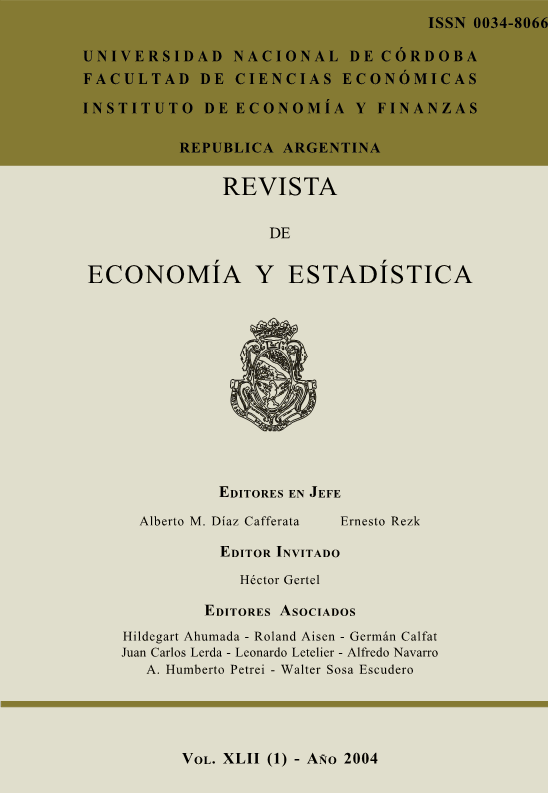University student performance and its determinants
DOI:
https://doi.org/10.55444/2451.7321.2004.v42.n1.3800Keywords:
higher education , university, academic performanceAbstract
This research reports the results of a survey carried out by the Departmentof Economics of the National University of La Plata. Subjects were 4676regular students of the school who participated on a voluntay basis. Wehave estimated the determinants of the students' performance. To this aimwe have measured performance in three ways: the number of subjectspassed per year,the average mark, and a combination of the two previousaverages. We have found that performance depends on the programe ofstudy (higher for economics), the sex (higher for women), the age (higherfor younger), the parents' education, the type of secondary school, and theregulations of the school about the condition of regular student. Theperformance is lower for students who work and decreases as the numberofworking hours increases.
Downloads
Downloads
Published
Issue
Section
License
Copyright (c) 2004 Alberto Porto, Luciano Di Gresia

This work is licensed under a Creative Commons Attribution-NonCommercial-NoDerivatives 4.0 International License.
Authors who have publications with this journal agree to the following terms:
Authors retain their copyright and grant the journal the right of first publication of their work, which is simultaneously subject to the Creative Commons Attribution-NonCommercial-NoDerivatives 4.0 International License that allows third parties to share the work provided that its author and first publication in this journal are indicated.
Authors may adopt other non-exclusive licensing arrangements for distribution of the published version of the work (e.g. depositing it in an institutional telematic archive or publishing it in a monographic volume) as long as the initial publication in this journal is indicated.
Authors are allowed and encouraged to disseminate their work via the Internet (e.g. in institutional telematic archives or on their website) before and during the submission process, which can lead to interesting exchanges and increase citations of the published work. (See The Open Access Effect)










